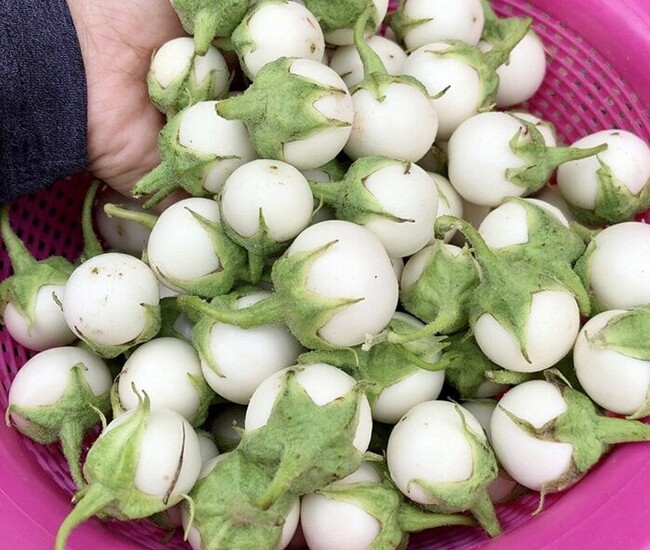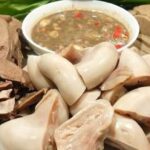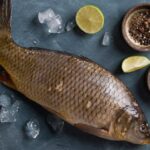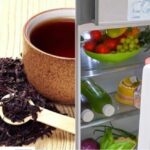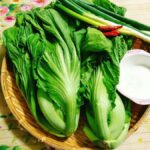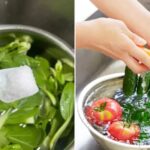Tips for Pickling Crisp, Delicious, and Pristine White Baby Eggplants
Select the right baby eggplants:
– Opt for medium-sized baby eggplants, neither too young nor too mature.
– The ideal ones are round and evenly shaped, with shiny skin. They should feel firm to the touch – this indicates they will naturally turn crisp when pickled.

A compilation of tips for pickling crisp baby eggplants.
Let the baby eggplants wilt before pickling:
– Sun-dry the baby eggplants for a few hours to reduce their moisture content. This prevents them from turning soft after pickling.
– If it’s raining, you can leave them in a well-ventilated area indoors to “dehydrate” as well.
Soak them immediately after cutting to prevent discoloration:
– As soon as you cut the baby eggplants (or leave them whole if you prefer), place them in a basin of water mixed with salt and lemon juice.
– Soak for at least 30 minutes to allow the baby eggplants to release their sap and retain their beautiful white color.

Ensure your pickling jar is thoroughly cleaned and dried:
– Sterilize your pickling jar by boiling it in water and letting it air dry. This prevents the formation of scum and bacterial growth.
Always use cooled brine:
– Never use warm or hot brine for pickling baby eggplants as it can make them soft and prone to scum formation.
Use vinegar to prevent scum and maintain whiteness:
– Adding a spoonful of vinegar to the brine is a clever trick to keep the baby eggplants white for longer, reduce scum formation, and impart a pleasant mild sourness.
Always keep the baby eggplants submerged:
– Use a press or a water-filled bag to weigh down the baby eggplants, ensuring they remain fully submerged. This is crucial to preventing discoloration and scum formation.
Method for Pickling Crisp White Baby Eggplants
Ingredients:
– 1kg baby eggplants.
– 1 clove of garlic (crushed), 1 small piece of galangal (sliced), 5 chili peppers.
– 50g salt, 40g sugar, 1 tablespoon of vinegar.
– 1.5 liters of filtered water.
– Clean glass jar, sterilized by boiling and dried.
Instructions:
Sun-dry the baby eggplants until slightly wilted, then remove the stems.
Cut the baby eggplants (or leave them whole), and immediately soak them in a basin of water mixed with salt and lemon juice. Soak for 30 minutes, then rinse with filtered water.
Arrange the baby eggplants in the jar along with the garlic, galangal, and chili peppers.

Prepare the brine: Boil 1.5 liters of filtered water, let it cool completely, then mix in the salt, sugar, and vinegar.
Pour the brine into the jar, ensuring the baby eggplants are fully submerged. Seal the jar and store it in a cool, ventilated area. During summer, when the weather is hot, the baby eggplants will be ready to eat in just 2 days.
Final Product:
Enjoy a jar of pristine white, crisp baby eggplants with a subtle fragrance of galangal and garlic. They pair perfectly with boiled meat, braised fish, or a bowl of crab soup for a delightful summer afternoon treat!

























